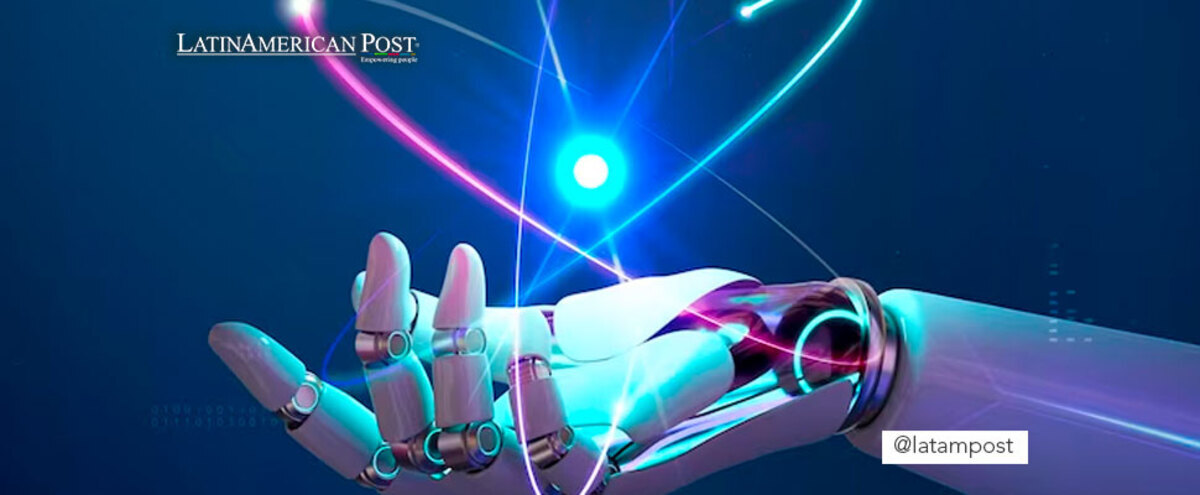Legislative Challenges of Artificial Intelligence in Latin America
Its potential to revolutionize industries and create massive technological breakthroughs has made AI an integral part of the economy, and Latin America is no exception. These are the legislative challenges of artificial intelligence in Latin America .

Photo: Freepik
LatinAmerican Post | Jorge Francisco Vuelvas
Listen to this article
Leer en español: Estos son los retos legislativos de la inteligencia artificial en Latinoamérica
In recent decades, the development of artificial intelligence (AI) has had a tremendous impact on societies around the world. This has been used to develop technologies such as facial recognition, autonomous vehicles and virtual assistants. Its potential to revolutionize industries and to create massive technological breakthroughs has made AI an integral part of the economy, and Latin America is no exception: nations in our region have been investing heavily in AI and are eager to make the most of its benefits.
However, the development of new AI technology raises many important legal and ethical questions. Therefore, here we will explore the legislative challenges of artificial intelligence in Latin America. We will discuss the legal framework that is necessary to ensure the safe and responsible use of AI, as well as some of the current challenges that Latin American nations face when trying to regulate AI technology.
How is AI legally defined?
The legal framework surrounding the development of AI technology is not yet defined in most Latin American countries. To ensure that AI is used responsibly, Latin American countries need to develop laws, rules, and regulations that address the various ethical concerns that arise with the use of AI. Issues such as data privacy, control over AI-generated content, and accountability for decisions made or inspired by AI must be addressed.
Additionally, there must be standards in place to ensure that algorithms are non-discriminatory. It is also important the transparency of AI technology so that users can understand how algorithms make decisions. This will help ensure that AI is used responsibly and does not cause any unwanted harm.
In addition to this, Latin American countries must also consider the effects of AI on labor markets. AI has the potential to significantly automate certain jobs and industries, potentially leading to job losses and economic disruption. It is important that governments have laws in place that protect workers from discrimination and ensure that any job displacement caused by AI technology is addressed responsibly.
This does not mean that the governments of our region should legislate against this technological development, but that they should implement measures that guarantee the well-being of those who could be temporarily displaced, and complement quality education so that there is a transition to a new model of employment, with new paid activities. Just look at previous industrial revolutions: while there were jobs that disappeared, new jobs were created that generated more wealth and expanded job opportunities.
Also read: Artificial Intelligence: Opportunity or Threat for Entertainment?
Legislative challenges in the region
Although Latin American countries are increasingly investing in artificial intelligence technology, clear and enforceable regulations are still missing. As a result, there is an increasing risk that AI technology will be abused or exploited in ways that could harm individuals and societies. Additionally, there is currently a lack of public awareness of the use of AI technology in Latin America. This means there is little societal pressure to ensure AI technology is used responsibly and ethically.
It should be noted that Latin American countries are still in the process of defining the legal limits of data ownership and privacy rights. In the absence of clear regulations, there is a risk that organizations and companies will collect and use data unethically.
Another potentially probable risk is that trade unions use their convening or coercive power to prevent regulations from advancing. These sectors could even choose to use their political force to generate laws that prevent technological advancement or want to overregulate the technology market. This has even been seen in our region with initiatives that have tried to stop collaborative economy startups.
What should we do to face these challenges?
In short, Latin American countries must take steps to ensure that AI technology is developed and used responsibly. This requires the development of a comprehensive legal framework that addresses the ethical concerns surrounding AI, as well as public awareness and education initiatives to ensure that people understand the capabilities and implications of AI technology. With the right regulations, AI technology has the potential to generate great progress and growth for Latin American societies.




